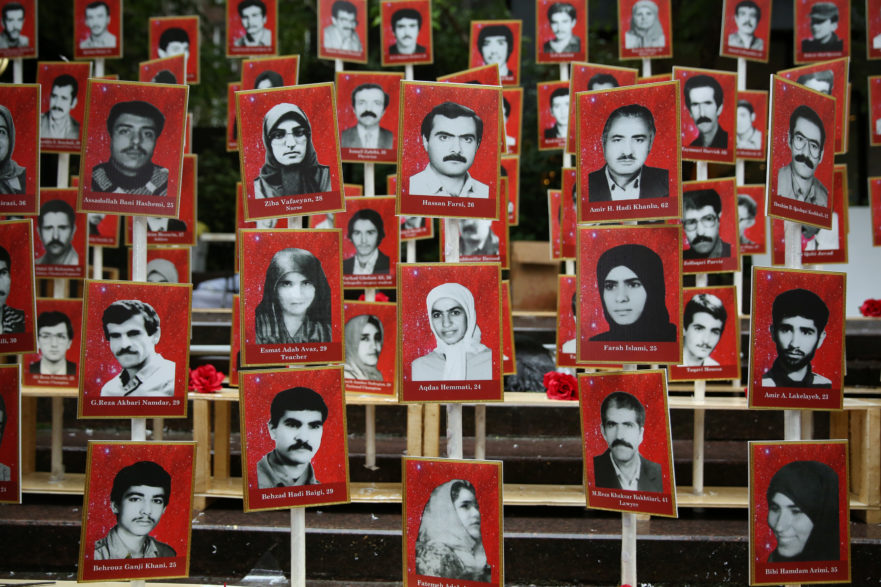June 18, 2019
Two weeks ago agents went to the home of Iranian Mehdi Hajati, a Shiraz City Councilman, and took him to prison for advocating religious tolerance. Another Councilman, Mehdi Moghaddari, was suspended from his seat for six months for defending Councilman Hajati on social media.
Ninety-four percent of Iran’s 82 million citizens are Twelver Shi’a Muslim and four percent are Sunni Muslim. Although the majority of the Muslim world today is Sunni, Iran is the largest and most populous Shi’a-majority state in the world. The constitution bans the parliament from passing laws contrary to Islam and states there may be no amendment to its provisions related to the “Islamic character” of the political or legal system or to the specification of Shia Ja’fari Islam as the official religion.
Iran’s constitution recognizes Christians, Jews, and Zoroastrians as protected religious minorities who may worship freely. However, thousands of Iranians are subject to discrimination and persecution because of their religious beliefs. Tehran harasses, interrogates and arrests religious minorities. Members of religious minorities also face societal discrimination and harassment, with employers experiencing social pressures not to hire or to dismiss them from their private-sector jobs.
Iran was one of 16 countries the U.S. State Department designated as a Country of Particular Concern based on conditions in 2018. The United States Commission on International Religious Freedom 2019 report says conditions in Iran worsened last year, with escalated government targeting of non-Shi’ite Muslims and other religious minorities of Baha’is, Christians, Jews, and Zoroastrians.
For example, minority Sunni Muslims wanted to build an official mosque in the Iranian capital last year, but Tehran rejected repeated requests. And some Sunni clerics were targets of violence.
One of the most vulnerable minorities are Iran’s estimated 300,000 Bahai’s. They regularly face arbitrary detention, harassment and imprisonment because the Iranian government does not recognize the Baha’i faith as a religion.
Jews living in Iran continue suffer through a public environment dominated by anti-Semitism and Holocaust denial.
Arrest of Christians escalated dramatically last year. Open Doors USA estimates that there are 800,000+ Christians living in Iran. Converts from Islam to Christianity bear the brunt of Christian persecution in Iran.
Even though Armenian and Assyrian Christians are recognized and protected by Iran, they are treated as second-class citizens and are not allowed contact with Muslim background Christians. They are also not allowed to conduct church services in the national language. Last month intelligence agents in Iran stormed a 100-year-old historic church belonging to The Assyrian Presbytery, changed the locks, tore down the cross from the church tower, and ordered the church closed. The Assyrian people are no longer allowed to hold worship services there.
Article 18, an independent NGO seeking to promote and increase awareness of the right to religious freedom among Iranians, reports that many churches owned by Protestants have been confiscated in Iran. And last year several house churches were raided including arrests of entire congregations. Most recently a house church leader was arrested because of peaceful assembly with other Christians. She was put in solitary confinement for 40 days and has been transferred from a smaller jail to a prison where infidels (a convert from Islam to Christianity) are housed. The emotional and psychological abuse inflicted during incarceration attempts to “break” her.
USCIRF’s 2019 report urges the U.S. government to speak out frequently at all levels about “severe religious freedom abuses” in Iran; to freeze the assets of Iranian officials responsible for such abuses and bar their entry into the U.S.; and to press for the release of all prisoners of conscience held in Iran.
USCIRF Commissioner Gary Bauer said, “Sadly, USCIRF’s report shows no progress in Iran at all between last year and this year. Iran continues to persecute various religious minorities including Muslim minorities that don’t agree with its Shi’ite regime. We have asked the Administration and Congress to keep religious liberty and human rights as a central part of our dealings and negotiations with Iran.”
Take Action
- Read about Iran’s persecution of Bahais
- Speak up for voiceless Christians in Iran
- Learn about USCIRF Prisoner of Conscience Pastor Youcef Nadarkhani
Photo Caption: Reuters/Amr Alfiky. Pictures of persecuted Iranians are seen during a protest outside the United Nations in New York City.

